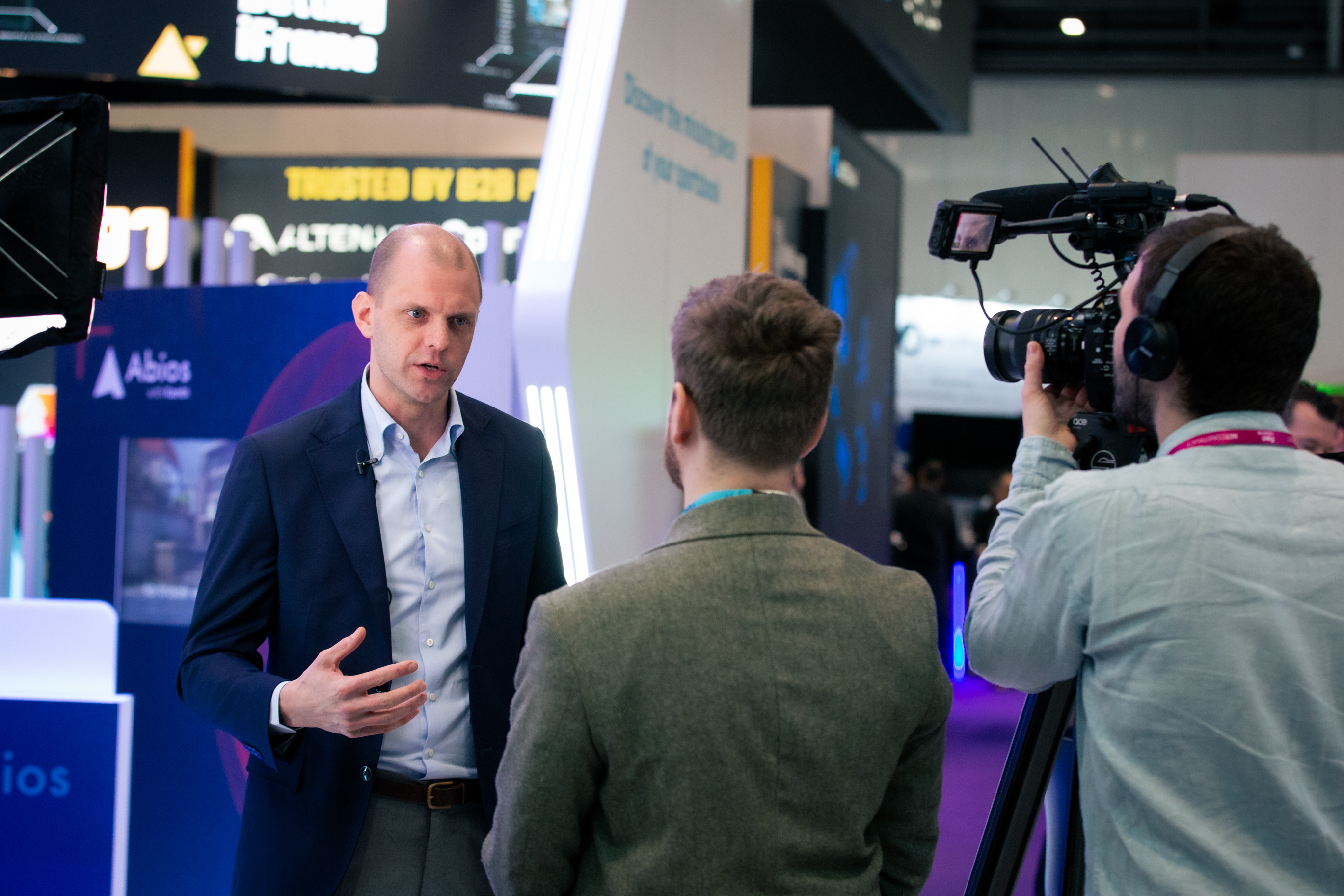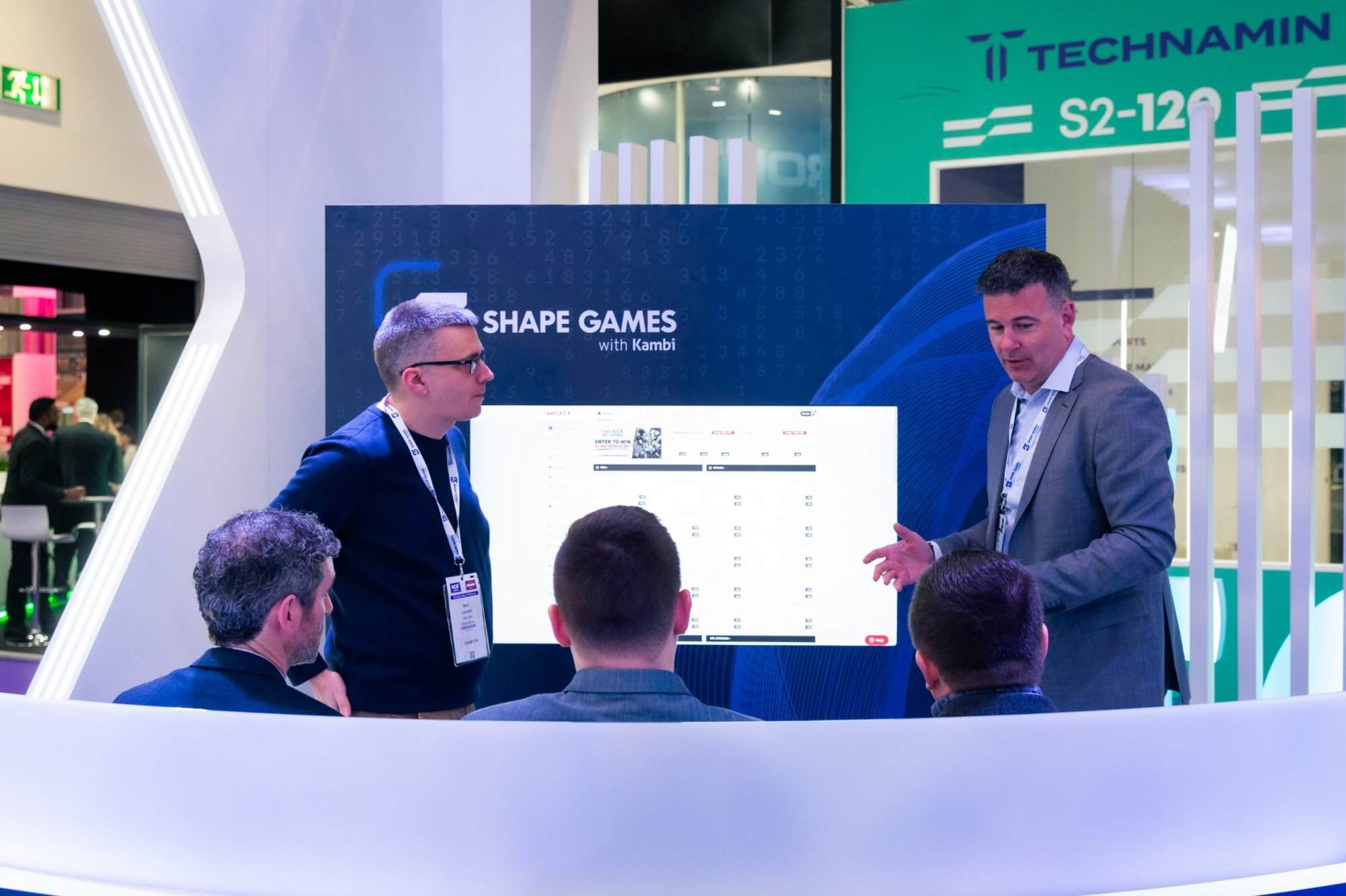
The greatest challenge for any sportsbook is removing barriers for the end users, according to Erik Lögdberg, Chief Operating Officer at Kambi, who delved into how the sports betting provider has transformed its offerings over the last two years.
Speaking at this year’s ICE London 2023, Lödgberg expressed that, along with removing said barriers, providers must create “more exciting offerings” for the end users while also taking away “any type of friction” on bet placements.
He stated: “In the past two years we’ve been very focused on modernising our technology and our service to create a more open and full sportsbook where our customers take more control of what goes into our product and how to package that out to the players.
“We’re going to be able to start creating side services, where we can start selling to operators with their own sportsbook.”
Lödgberg also explained Kambi’s third generation trading, which moves away from traditional sportsbooks that utilise trading functions and focuses more on an algorithm first approach.
Lödgberg also explained Kambi’s third generation trading, which moves away from traditional sportsbooks that utilise trading functions and focuses more on an algorithm first approach.
This is where the aforementioned challenges come into play, with Kambi’s COO stressing this way forward will allow the firm to meet “any operator needs” regardless of spectrum placement.
“The greatest challenge for any sportsbook is removing barriers for the end users and increasing a more exciting offering for the end users and taking away any type of friction on bet placement,” commented Lögdberg. With better use of data, both internal data and what we get from the stadiums etc, with an algorithmic approach, we believe we can do this better and better.
“In the future it will be less about insourcing or outsourcing sportsbooks, we see that in most cases it will be a mix of the two. With this modernisation, we’re creating a product portfolio that can meet any operator needs regardless of where they are on the spectrum.”
Looking at how Kambi will look at integrating fully with an algorithm first approach, Lödgberg noted that the company has a “full 360 degree view” of the sportsbook operation, data and experience, with individual services set to “hugely benefit” from that turnkey content.
In September of 2022,Shape Games began playing a key role in Kambi’s business development following a €38.5m takeover by the latter. The deal, at the time, was said to aid revitalise the sports betting provider’s front-end services.
The takeover will include a performance-related earnout of up to €39.6m, which could bring the total figure to €78.1m.
Stockholm-based Kambi undertook the merger after identifying the sportsbook front-end as having become ‘a key tool for operators’, particularly for efficiently differentiating a brand, localising an offering and engaging players for acquisition and retention.
Speaking at ICE London 2023, Morten Tonnesen, Chief Commercial Officer at Shape Games, stated that, since the acquisition, it has integrated its gambling solutions and is in conversation to roll out its solutions to more of Kambi’s clients.
He said: “What most companies see is that most of the revenue is generated by app engagement with consumers.
“Kambi acquired us because it had a big gap when it came to delivering its native app to its customer base and new clients. We’ve already been integrating with the gambling solution prior to the acquisition and had a long term relationship with Kambi.

“What we’ve done now is integrated and are in a number of conversations with existing Kambi clients to roll out our solutions to them and improve the experience for Kambi customers and future prospects as well.”
Explaining how the relationship between the two has enhanced innovation when it comes to the front-end solution, Tonnesen stated that Shape will focus on both customisation and flexibility moving forward.
“Working with Kambi, we have a much closer collaboration product development wise with the sportsbook and the innovations that are happening there through to the front end and to the consumer experience which will only be able to strengthen what we bring to the market in the future,” Tonnesen noted.
“We’re very much focused on two areas of products for consumers. One is customisation – making the product more tailored to the end user. Number two is flexibility. This enables more flexibility both in the types of bets and how the bet builders work for the consumer to ensure the product of the future is significantly better than it was before.”
Also expanding on how third generation data can be utilised in the esports ecosystem when compared to sports betting, Anton Janèr, Founder and Chief Technology Officer at Abios, a subsidiary of Kambi, stressed that it fits in ‘just like any other sport’.
While noting that Abios is moving into the sports betting vertical with its own proprietary odds product, the CTO concluded: “It is digital so it’s different in that sense but the dynamics are very much the same. It’s a sport with pros and fans and sports betting products fit really nicely in there as another layer of engagement.
“To some extent. Since esports is digital by nature, there’s a lot more high quality data produced. The question is, how do you get that and work in a smart way with that amount of data?
“In the same way, we’re talking a lot about third generation trading and pricing in regular sports and the data fields that we’re getting now are pretty advanced.”
Previously appeared on SBC News
Meet Kambi, Abios, and Shape Games at this year’s Festival of Sportsbook











